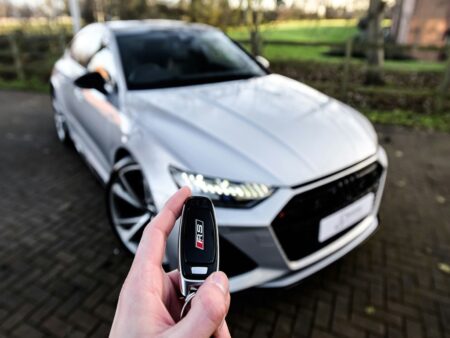The impact of branding on car resale value is a significant factor that many car buyers and sellers consider. A car’s brand can heavily influence its perceived value in the market, affecting everything from the price it commands to its desirability among potential buyers. Renowned brands often carry a reputation for reliability, quality, and performance, which can enhance resale value. Understanding how branding interacts with resale value can help both buyers and sellers make informed decisions in the automotive marketplace.
Brand Reputation and Perceived Quality
One of the primary ways branding impacts resale value is through brand reputation. Established brands, such as Toyota, Honda, and BMW, have built strong reputations over the years based on consistent quality, performance, and reliability. This positive perception translates into higher resale values because buyers are often willing to pay a premium for cars from brands they trust.
In contrast, lesser-known or less reputable brands may struggle to maintain their value over time. Buyers may perceive these vehicles as lower quality or less reliable, which can lead to lower demand and, consequently, lower resale prices. As a result, brands that invest in building a positive image through marketing and customer satisfaction often see a more significant return on their vehicles when it comes time to sell.
Market Demand and Brand Popularity
Brand popularity plays a crucial role in determining resale value. Popular brands tend to have higher demand in the used car market, which can drive up prices. For instance, brands that are known for their innovation, performance, or luxury, such as Mercedes-Benz or Tesla, often command higher resale values due to their appeal among consumers. When a brand has a strong following, its vehicles tend to retain their value better than those from brands that lack a similar level of demand.
Conversely, brands that experience a decline in popularity or have a negative image may see a decrease in resale value. Changes in consumer preferences, such as a shift towards more environmentally friendly vehicles, can affect how brands are perceived. For example, brands that fail to adapt to changing trends may find their vehicles depreciating more rapidly, as buyers seek alternatives that align with their values and preferences.
Vehicle Type and Brand Positioning
The type of vehicle a brand offers also influences its resale value. Luxury brands, for example, tend to have a distinct advantage in the resale market. Vehicles from brands like Audi, Lexus, and Porsche often retain value better than their non-luxury counterparts. This phenomenon can be attributed to the high initial price of luxury vehicles, which often leads to higher resale values even after depreciation.
In addition, brands that position themselves as eco-friendly or innovative, such as electric vehicle manufacturers like Tesla, may also experience higher resale values. As more consumers prioritize sustainability, vehicles from brands that focus on environmentally friendly technology may see an increase in demand and, subsequently, resale value. This reflects how brand positioning can shape consumer preferences and affect the perceived value of vehicles.
Warranty and Reliability
Another important aspect of branding that impacts resale value is the warranty and reliability associated with a brand. Brands known for offering extensive warranties and reliable vehicles instill confidence in potential buyers. For example, brands like Hyundai and Kia have gained popularity due to their long warranty periods, which can enhance the resale value of their vehicles.
In contrast, brands with a reputation for reliability issues or limited warranties may deter potential buyers, leading to lower resale prices. When sellers can demonstrate that a vehicle has been well-maintained and is backed by a strong warranty, they may be able to command a higher resale price, as buyers perceive reduced risk.
In conclusion, the impact of branding on car resale value is multifaceted and significant. Brand reputation, market demand, vehicle type, and warranty reliability all play crucial roles in determining how well a car retains its value over time. For buyers, understanding the importance of branding can lead to more informed purchasing decisions that favor brands with strong resale potential. For sellers, recognizing the value of branding can help maximize profits when it’s time to sell. Ultimately, a car’s brand is not just a logo; it represents a complex interplay of perception, quality, and market dynamics that can significantly influence its resale value.




